Using Antioxidants with Cancer Therapies
Antioxidants in conjunction with modern Western cancer therapy protocols have long been a topic of controversy. Predating current scientific evidence there were concerns among the traditionally held provider community that such could potentially interfere with treatment.
Combining the oxidative effects of radiotherapy or chemotherapy with an antioxidant therapy may seem like a bit of a self-negation. This was a long-held conventional theory. More recent research, however, has been conducted on this specific concern and the results provide a paradigmatic addition to such a conclusion.
Antioxidants Proven to Help Cancer Patient
A 2007 study titled “Antioxidants and other nutrients do not interfere with chemotherapy or radiation therapy and can increase kill and increase survival” concluded that not only do dietary antioxidants not interfere with radiation therapy, but they actually make radiotherapy more effective and less harmful to healthy tissues (1,2). Among the antioxidants reviewed were vitamin A, vitamin E, selenium, vitamin D, glutathione, B vitamins, vitamin K3, and cysteine.
The findings in the 2007 study are significant because antioxidants have a broad range of benefits, particularly as relates to cancer treatment. Because much of the peripheral damage of cancer treatment is caused largely by oxidative stress and inflammation, increasing the body’s antioxidant defense systems can drastically reduce side effects and limit suffering by the patient.
The addition of antioxidant rich foods and supplements may be one of the key foundational nutritional strategies in protecting the body from side effects of traditional therapies while also providing unique cancer-fighting benefits of their own. This article will summarize the findings of the study by breaking down the antioxidants studied and will be referenced as “The Antioxidant Review”.
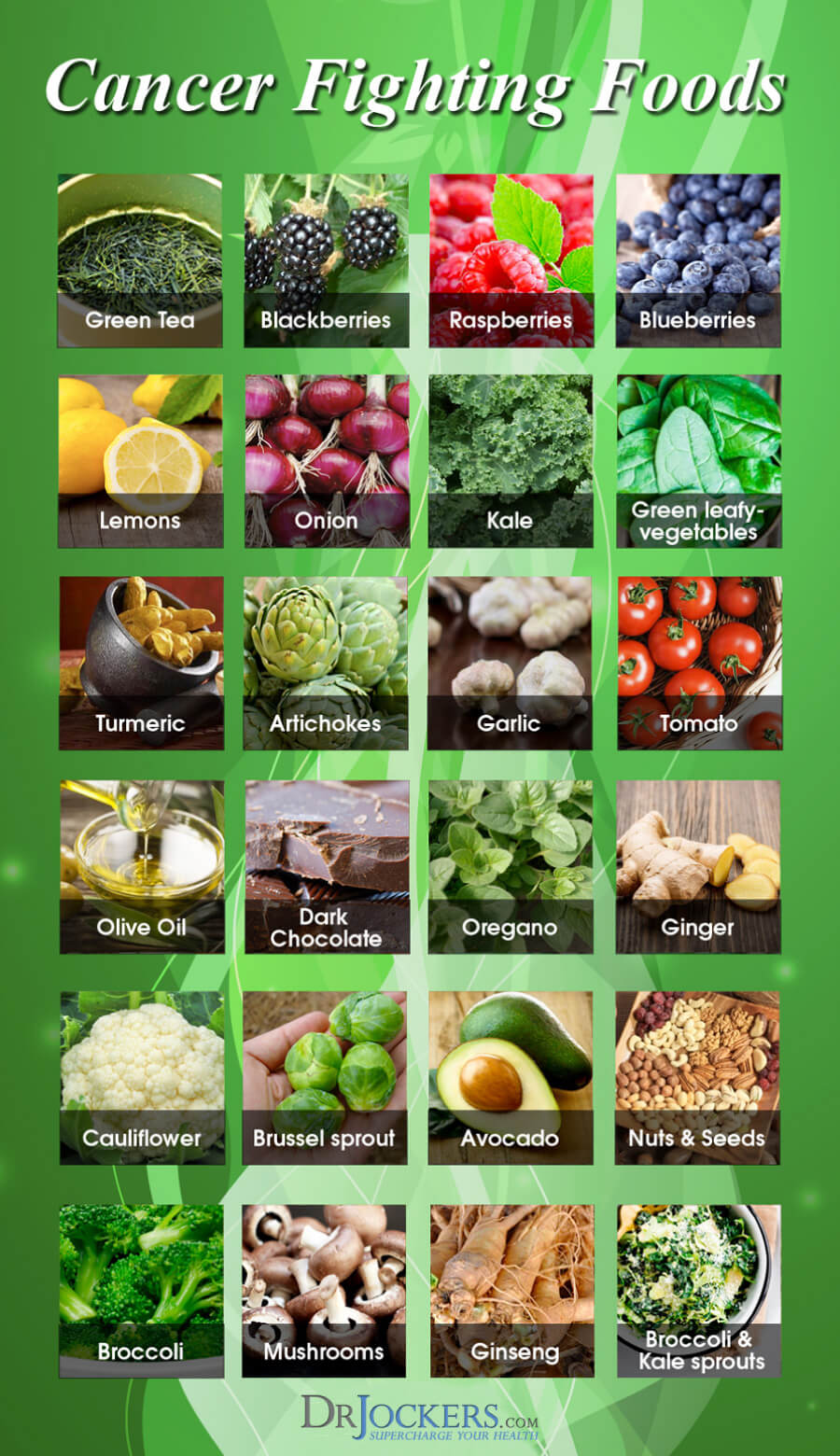
Vitamin A and Vitamin A Precursors
Vitamin A is a fat-soluble vitamin that is associated with healthy vision, communication of the cells, and healthy immune function. Added to chemotherapy or radiation therapy, this vital nutrient can provide several benefits.
One of the observational studies observed in “The Antioxidant Review” followed 275 patients with cancers of the head and neck who were receiving such a combination and saw an increased sensitivity of the cancer cells to the treatment which caused the cancer to respond much more quickly to radiation.
In addition, there was a significant reduction in harmful side effects of treatment (1). Because chemotherapy and radiation combinations are often the most detrimental to the body, this is a significant finding for those patients.
A total of 10 studies were included in the review for Vitamin A as an integrative therapy for cancer treatment. The following are some of the findings mentioned:
- Increased response, duration of response, and projected survival in metastatic breast cancer patients receiving chemotherapy.
- Increased response rate and survival with fewer side effects in chronic myelogenous leukemia patients receiving chemotherapy
- Increased response rate and survival with fewer side effects in Stage IIIB/IV lung cancer patients receiving chemotherapy.
On average, Vitamin A was successfully used as a natural adjuvant therapy in various types and stages of cancer. It can reasonably be expected, therefore, that Vitamin A in combination with traditional therapies can increase the response of cancer cells to chemotherapy and radiation while reducing harmful side effects and improving long-term health outcomes.
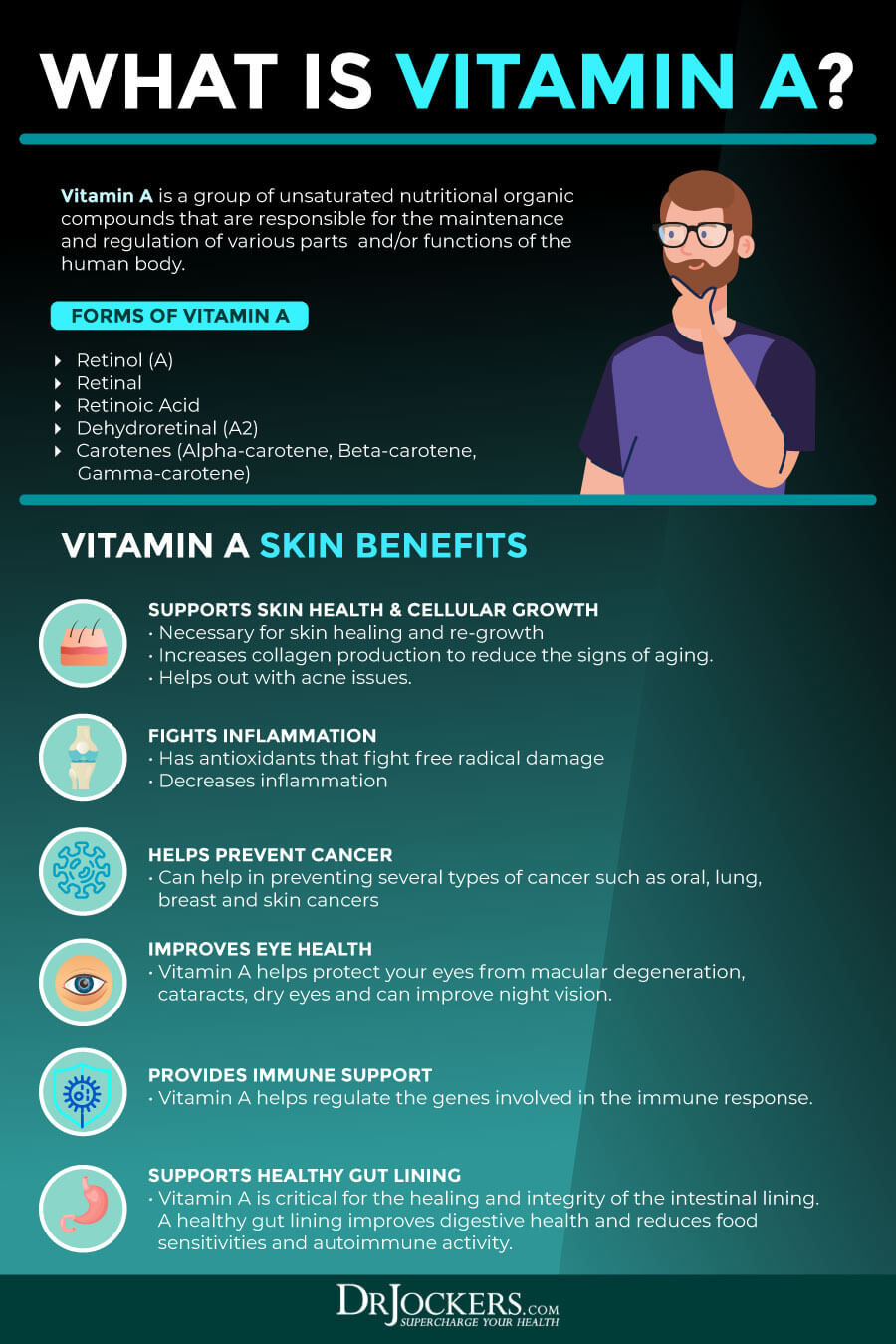
Vitamin E
Vitamin E is another fat-soluble vitamin and is most commonly known for its antioxidant activity. Deficiency in this critical nutrient can aid in the development of peripheral neuropathies and immune system weakness. These two common side effects can also occur in cancer treatment. Vitamin E combined with traditional cancer therapies has displayed the ability to improve several measures of treatment (1).
Through a review of 10 separate studies, Vitamin E has been shown to:
- Help prevent the progression of cancer by slowing cell proliferation
- Decrease harmful side effects of chemotherapy agents while not interfering with therapeutic effects
- Increase response to chemotherapy
- Help prevent Inflammation of the digestive tract
- Prevent hair loss
In addition to the benefits observed in the antioxidant review study, Vitamin E Succinate has also been shown to help prevent cardiac toxicity that can occur with certain chemotherapy or radiation treatments (3).
Finally, Vitamin E has demonstrated several anti-cancer effects independently from chemotherapy or radiation. Among those studied are its ability to slow cell division, induce apoptosis, and target cancer stem cells in some cases. Vitamin E can be administered in many forms and many studies focus on tocopherols with low levels of success. The tocotrienol forms have demonstrated a much higher benefit, possibly due to their higher bioactivity (4).

B-Vitamins
The B vitamins are a group of nutrients often acknowledged for their role in energy production. Some of them however are important for proper function of the nervous system as well as red blood cell formation. Nicotinamide (B3) and Pyroxidine (B6) were specifically addressed in this study.
Nicotinamide (B3)
A small study involving 25 patients was reviewed in which patients receiving a combination of radiation and hyperthermia (increase in body temperature) saw a complete response in 72% of the patients with fewer side effects when niacinamide supplementation was implemented (2).
One common characteristic of tumors is that the cells contained within them are often hypoxic. Hypoxic means that these cells thrive in a low oxygen environment and this adaptation makes them resistant to certain treatments like radiation.
Fortunately, there are natural strategies to alter this hypoxic state and drive more oxygen into the tumor. A combination of niacinamide and hyperthermia is one way of accomplishing this.
In combination with radiotherapy, increasing oxygenation to the tumor drastically lowers the tumor’s defense against radiation which usually results in higher remission rates (5). This effect can be intensified with the implementation of Hyperbaric Oxygen Therapy (HBOT) (6).
Pyroxidine (B6)
Two studies were reviewed involving a total of over 6500 patients receiving vitamin B6 in the form of pyroxidine in which patients generally saw an increased response rate to chemotherapy, longer survival rates, and fewer side effects including neurotoxicity.
Vitamin D
Vitamin D is potentially one of the most important vitamins for disease prevention and has shown tremendous cancer-fighting benefits. One of the most significant effects of Vitamin D that makes it an important adjuvant to traditional treatment is its ability to target cancer stem cells.
Although Vitamin D is readily synthesized from sunlight exposure, modern lifestyle design has left a drastic majority of Americans deficient. It becomes even more crucial to add Vitamin D to a chemotherapy or radiation treatment for its protective and cancer-fighting effects.
Research has demonstrated that blood levels of Vitamin D alone are positively correlated with long term cancer survival. Furthermore, the addition of vitamin D to cancer therapy can improve long term health and reduce side effects including inflammation of the gut lining, bone degradation, and cachexia (extreme atrophy and weight loss)(7).
“The Antioxidant Review” cited a study involving 44 patients with myelodysplastic (cancers of the immune cells within the bone) syndromes who saw 30% higher response rates when supplementing Vitamin D with chemotherapy compared to a chemotherapy-only control. Outside of this review, several other studies have found similar results (7).
Additionally, Vitamin D is a powerful immuno-stimulatory agent that can (8):
- Boost white blood cell activity
- Boost platelet and red blood cell count
- Promote apoptosis and significant tumor size reduction
Vitamin K
Vitamin K is found prominently in green leafy vegetables and is considered a critical nutrient for longevity in life expectancy. Originally touted for its role in regulating blood coagulation, it has now been found to have several important roles in health.
Vitamin K acts synergistically with Vitamin D to promote bone health and regulate the immune system so it is important to include both in a healthy supplementation regimen. In “The Antioxidant Review”, two separate studies were cited involving a total of 65 patients with varying cancers in which Vitamin K3 (menadione) was administered along with various chemotherapeutic agents depending on cancer type.
Both studies came to the same conclusion that administration of vitamin K3 increased the response of the chemotherapy agents while reducing side effects.
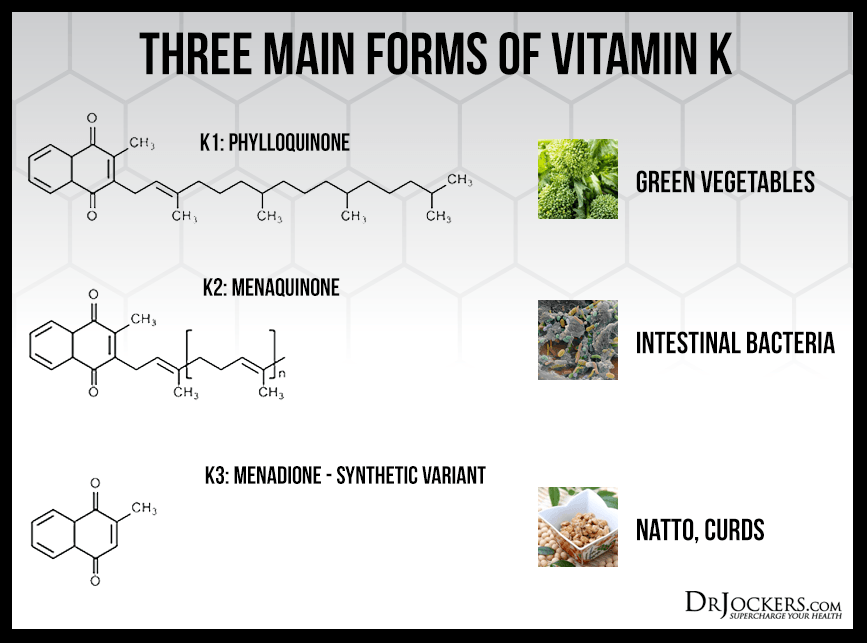
Glutathione
Glutathione was one of the most heavily referenced antioxidants in this review with 14 studies and a total of 532 patients. In general, glutathione demonstrated the ability to significantly reduce the side effects of chemotherapy and radiation, increase remission rates, and increase survival after treatment.
Glutathione has been dubbed the “master antioxidant” and for good reason. Not only does it have free radical mitigating properties of its own, but it also helps regulate other antioxidants in the body such as vitamins C and E. Additionally glutathione plays a role in immunity, brain health, detoxification, and inflammation.
High levels of glutathione have demonstrated a remarkable ability to control oxidative stress by neutralizing free radicals, particularly in the case of radiation exposure (9). The master antioxidant can be boosted naturally by consuming foods that contain the precursors of glycine, glutamic acid, and cysteine.
The best sources of these amino acids are a 100% grass-fed un-denatured whey protein or a high quality pea protein. NAC (N-acetyl cysteine) and ALA (alpha lipoic acid) supplementation are also able to raise glutathione levels.
Finally, for optimized glutathione levels it is important to include flavonoid-rich foods and adequate magnesium intake in one’s diet. Combining glutathione boosting strategies with an antioxidant-rich diet including those mentioned in this article will provide generous support to the body while receiving chemotherapy or radiation.
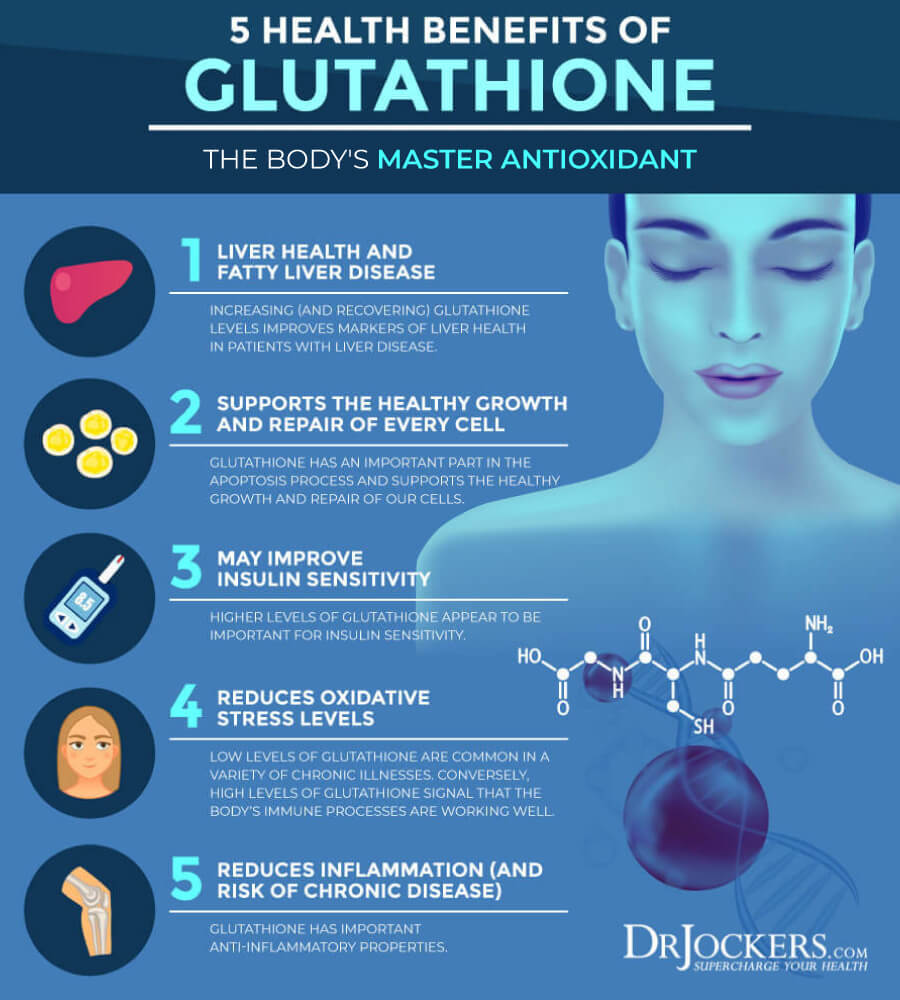
The Synergy of Antioxidants
Although many antioxidants have health benefits when used in isolation, evidence suggests that combining them provides a more powerful synergistic effect. For example, one study in The Journal of Nutrition measured the antioxidant activity of apples, oranges, blueberries, grapes, and a combination of the four.
Blueberries had the highest antioxidant activity than the other fruits in isolation. The fruit combination, however, had the highest antioxidant effect even in a much smaller dose (10). The findings in this study are just a hint at the synergy of phytonutrients.
In “The Antioxidant Review”, nutrient combinations were also investigated. The following are some of the findings:
- Small cell lung cancer patients receiving chemotherapy and/or radiotherapy had longer survival rates, fewer side effects, and higher responses to their treatment when supplementing with Vitamin A, beta-carotene, Vitamin E, Thiamin, Riboflavin, pyroxidine, Vitamin B12, Nicotinamide, Vitamin D, Vitamin C, Calcium, and Biotin.
- Metastatic breast cancer patients receiving traditional cancer treatment had lower recurrence rates, higher survival rates, and higher remission rates when supplementing with Vitamin C, Vitamin E, Beta-carotene, selenium, essential fatty acids, and CoQ10.
- Protection of the heart from chemotherapy and radiation damage was measurably augmented in patients of various cancers when supplementing with a combination of n-acetyl-cysteine, Vitamin E, and Vitamin C.
Final Thoughts
Considering the evidence presented and the available research data, implementing antioxidants alongside conventional cancer treatments can improve several measured health outcomes.
Supplementing with the antioxidants mentioned is one avenue to increase your cancer-healing ability. It is also important to consume a wide variety of foods that contain additional anti-cancer compounds.
If you want to work with a functional health coach, I recommend this article with tips on how to find a great coach. On our website, we offer long-distance functional health coaching programs. For further support with your health goals, just reach out—our fantastic coaches are here to support your journey.

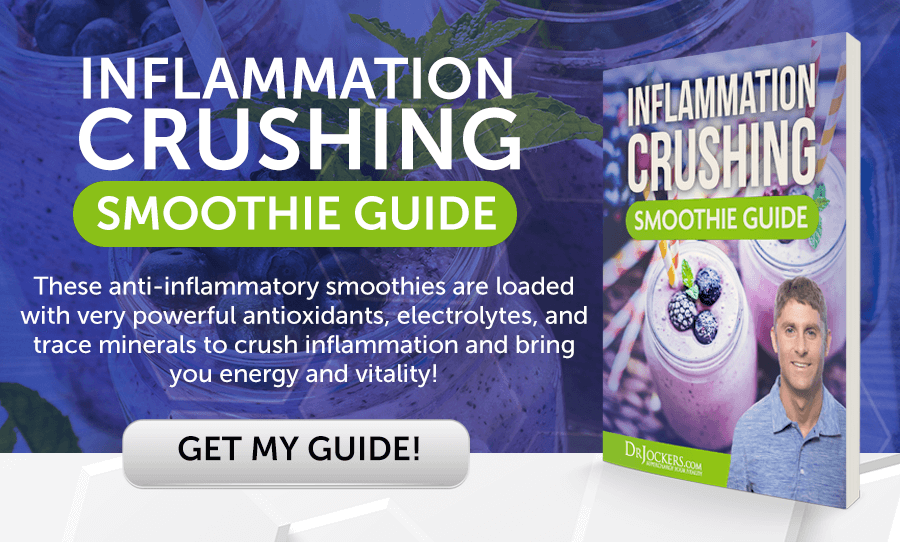 Inflammation Crushing Ebundle
Inflammation Crushing Ebundle
The Inflammation Crushing Ebundle is designed to help you improve your brain, liver, immune system and discover the healing strategies, foods and recipes to burn fat, reduce inflammation and thrive in life!
As a doctor of natural medicine, I have spent the past 20 years studying the best healing strategies and worked with hundreds of coaching clients, helping them overcome chronic health conditions and optimize their overall health.
In our Inflammation Crushing Ebundle, I have put together my very best strategies to reduce inflammation and optimize your healing potential. Take a look at what you will get inside these valuable guides below!
Sources For This Article Include:
1. Ii, C. B. S., Simone, N. L., Simone, V., & Simone, C. B. (2007). Antioxidants and Other Nutrients I. Alternative Therapies, 13(1), 22–28. PMID: 17283738
2. Ii, C. B. S., Simone, N. L., Simone, V., & Simone, C. B. (2007). Antioxidants and Other Nutrients II. Alternative Therapies, 13(1), 22–28. PMID: 17405678
3. Zhang, J., Cui, X., Yan, Y., Li, M., Yang, Y., Wang, J., & Zhang, J. (2016). Research progress of cardioprotective agents for prevention of anthracycline cardiotoxicity. PMID: 27508008
4. Wada, S. (2012). Cancer Preventive Effects of Vitamin E. Current Pharmaceutical Biotechnology, 13(1), 156–164. PMID: 21466429
5. Horsman, M. R., & Overgaard, J. (2016). The impact of hypoxia and its modification of the outcome of radiotherapy. Journal of Radiation Research, 57(March), 1–9. PMID: 26983987
6. Ste ̨pien ́, K., Ostrowski, R. P., & Matyja, E. (2016). Hyperbaric oxygen as an adjunctive therapy in treatment of malignancies, including brain tumours. Medical Oncology, 33(9), 1–9. PMID: 27485098
7. Gröber, U., Holzhauer, P., Kisters, K., Holick, M. F., & Adamietz, I. A. (2016). Micronutrients in oncological intervention. Nutrients, 8(3), 1–30. PMID: 26985904
8. Ward, E., Smith, R., Branca, J. J. V, Noakes, D., Morucci, G., & Thyer, L. (2014). Clinical experience of cancer immunotherapy integrated with Oleic Acid complexed with de-glycosylated vitamin D binding protein. American Journal of Immunology, 10(1), 23–32. Link
9. Chatterjee, A. (2013). Reduced glutathione: A radioprotector or a modulator of DNA-repair activity? Nutrients, 5(2), 525–542. PMID: 23434907
10. Liu, R. H. (2004). Potential synergy of phytochemicals in cancer prevention: mechanism of action. The Journal of Nutrition, 134(12 Suppl), 3479S–3485S. PMID: 15570057

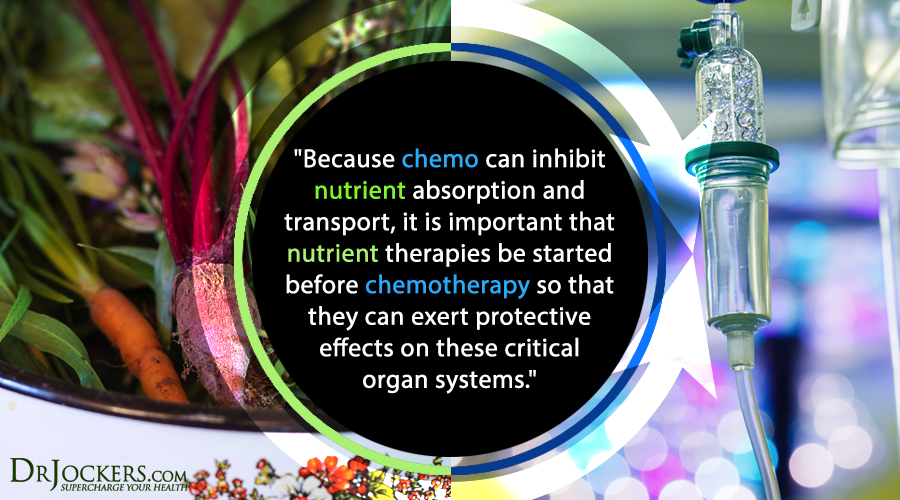
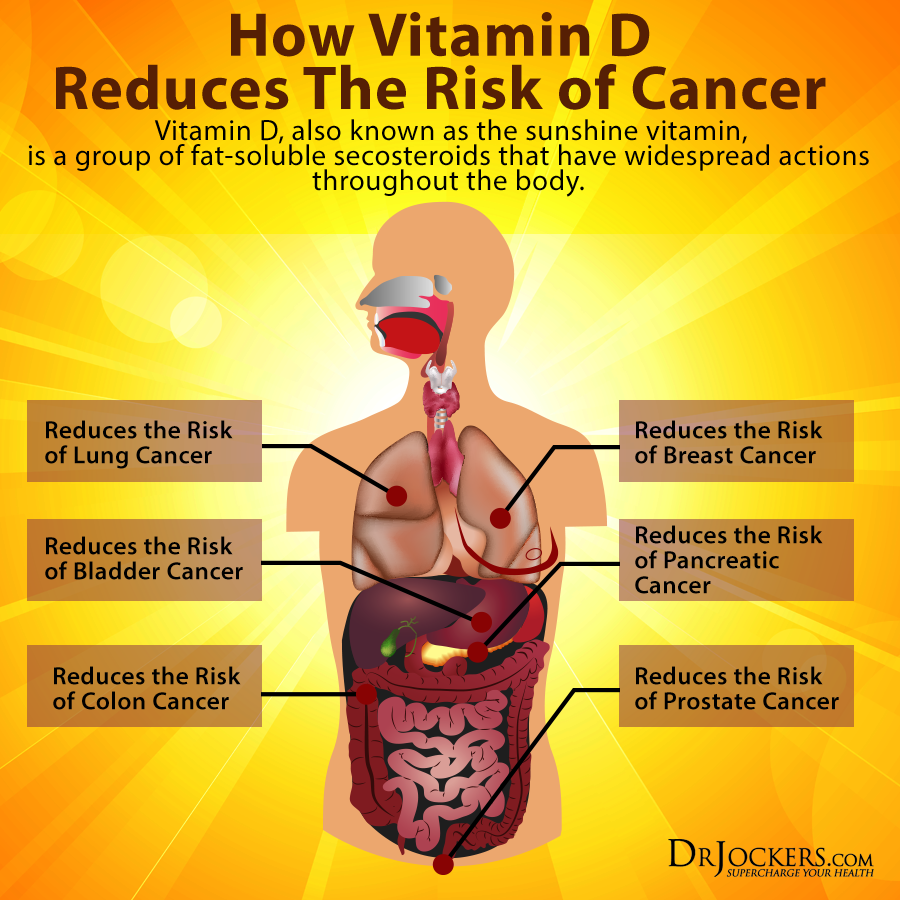
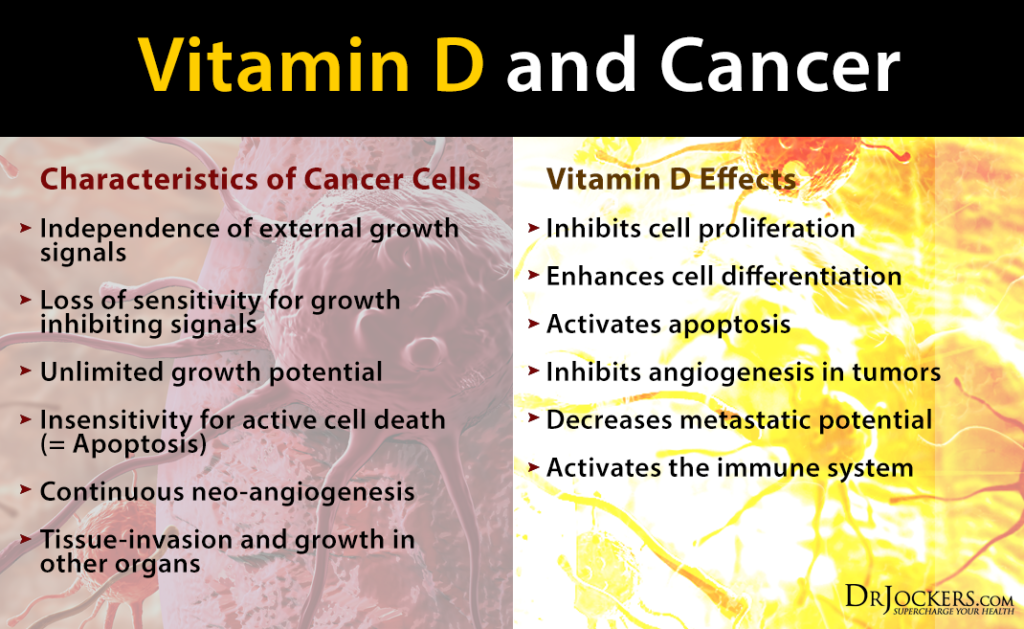
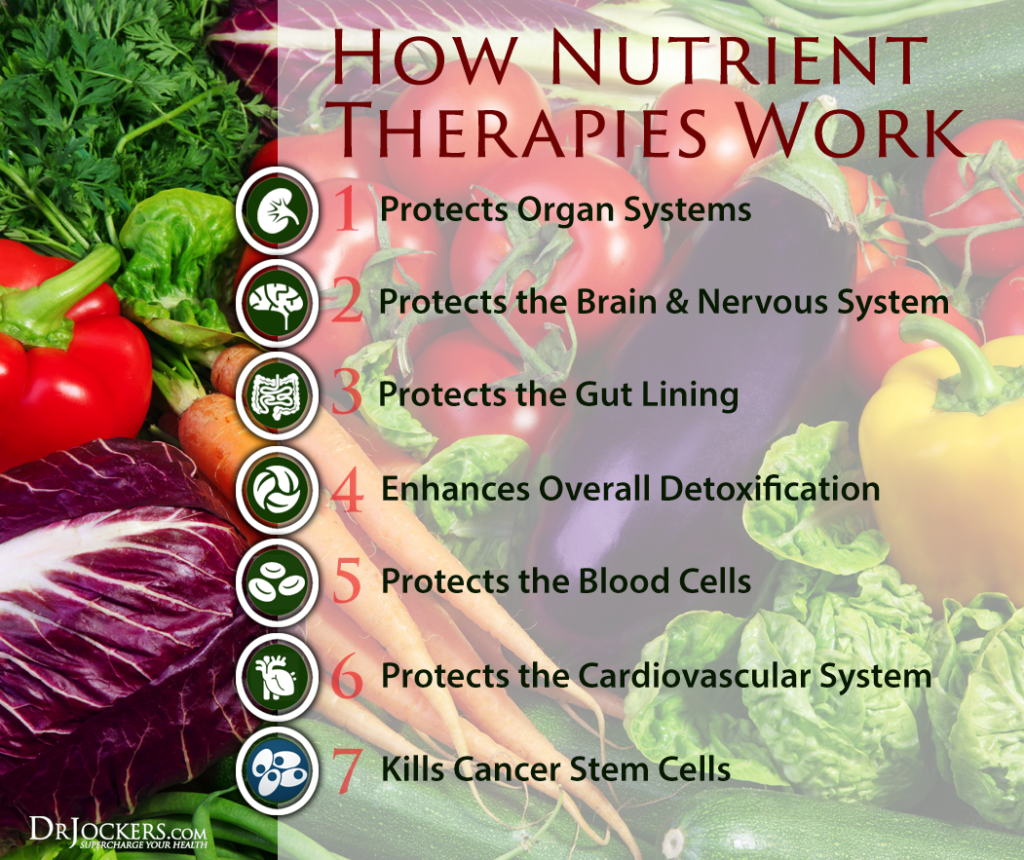




Hello Dr. Jockers
I am following a metabolic treatment including many of the supplements you recommend above plus some repurposed drugs for my stage 3 her2 breast cancer. I am confused about the conflicting information regarding the effect of supplemented antioxidants on active cancer cells. Can you shed any light on this? I am especially confounded by the studies that suggest that antioxidants induce metastasis. I take A, E, D, K, selenium & alpha lipoic acid daily. (So far so good) I just don’t understand how evidence can be so conflicting.
Hey Tina, Anti-oxidants do not induce metastasis. Here is a helpful article on nutrient therapies and cancer https://drjockers.com/antioxidants-cancer-treatment/